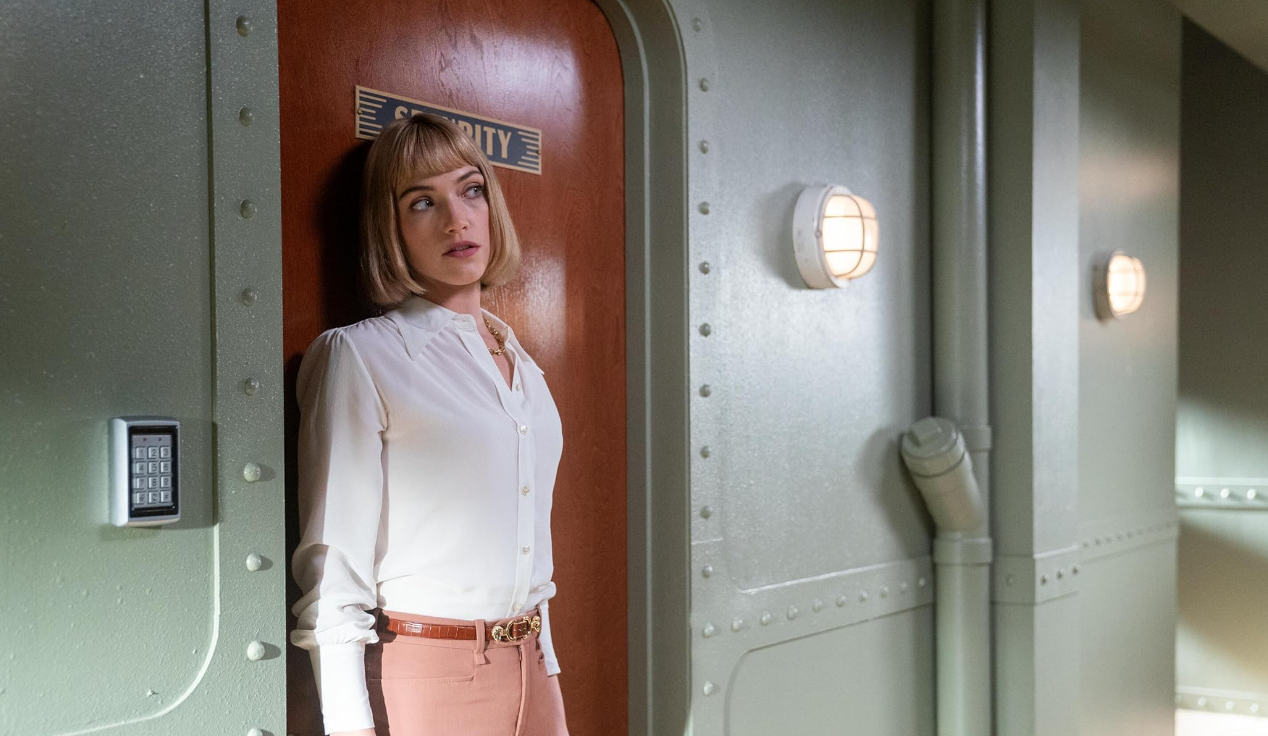Movies
[Review] ‘Saint Maud’ Is An Exquisite Religious Psychological Thriller

There’s something imminently satisfying about a slow burn, psychological thriller. Writer/director Rose Glass’ feature directorial debut Saint Maud isn’t filled with the kind of bombastic imagery of The Conjuring series, but what the hysterical religious film lacks in loud, dramatic set pieces, it makes up for in creeping dread and ambiguity.
For nurse Maud (Morfydd Clark), piety is a vital component of her every day life. After a brief opening scene detailing some horrific incident in a hospital, Maud is formally introduced packing for a new assignment. Her temporary apartment is sparsely decorated, save for her religious shrine. She also carries her faith with her in the form of a Mary Magdalene pendant around her neck.
Maud is now employed by a private palliative care company, working for a semi-reclusive terminal patient named Amanda Kohl (Jennifer Ehle). The woman was once a famous dancer, but at this stage of her illness, she is nearly housebound and restricted to her bed or a wheelchair. Amanda’s proximity to death has not diminished her strong character, however: she still smokes and drinks heavily, she still enjoys the company of younger female companion Carol (Lily Frazer), and she openly mocks Maud’s faith by pretending to take an interest.
After working for Amanda only briefly, Maud begins to feel a divine connection, which in an early evocative scene, manifests itself as a kind of orgasmic fit while she walks up the staircase. Maud infers that this is a sign from God that she is meant to save Amanda in the short time that remains before the dancer passes…even if the woman doesn’t necessarily share her beliefs.
Saint Maud only works as well as it does thanks to Clark’s performance. This is a film with a lead performance and a solid (but small) supporting role by Ehle. The handful of other folks who appear, including Carol and Maud’s former party friend Joy (Lily Knight), only show up in a few scenes. Clark, on the other hand, appears in nearly every scene – in a role that demands not only subtlety, but also a surprising amount of physicality, no less.
Her performance works in conjunction with the sound design, which employs a kind of electrical hum when Maud is experiencing her connection. This is accented by Glass’ camera, which frequently swoops in for close-ups of Maud’s ecstatic, overwhelmed face.
Ultimately Saint Maud is a film about faith and circumstances that endanger that faith. It is integral that Maud is both a recent religious convert and also so devout that she willingly harms herself and others for her faith (not for nothing, her self-flagellation scenes are among some of the most uncomfortable moments in the entire film). As a recent convert, Maud lacks the steadfast conviction that accompanies a lifetime of penance and devotion. This means that when she is challenged, by circumstances and by Amanda, Maud is uncertain…and in that uncertainty lies an opportunity for the danger to creep in.
Amanda, by comparison, has a strength of will and a personality that is so dominant that she isn’t easily swayed. The interactions between Clark and Ehle are by far the highlight of the film (a confrontation at a party is particularly juicy and memorable). These scenes work not only because both actresses are exceptional, but because Glass’ screenplay plays their every encounter like a battle of wills with a soul at stake in the middle.
The real question raised by Saint Maud – the question upon which the film builds its entire premise – is whether Maud is going insane or if she truly does have a connection to God.
This delicious ambiguity, this uncertainty, only becomes more pronounced as the film goes on. Glass offers visuals that suggest Maud is dangerously out of control, but also images that support her claim that she is a vessel for the lord. Glass’ refusal to provide confirmation, especially during the shocking, violent finale, is proof of a screenwriter confident in her craft. By eschewing easy answers or placating audiences who demand closure, Saint Maud is a far more fascinating piece of art: is it a portrait of a young woman slowly losing her grip on reality in service of her devotion to her faith or it is a religious parable about an emissary battling demons to save a life? Or is it both?
The film lives in the place in between that question and the result is a confident, measured first feature. Saint Maud is slow, and moody, and gorgeous, and powerful. It’s simply good cinema.
Editor’s Note: This TIFF review was originally published on September 11, 2019.
Saint Maud is now playing in theaters, and coming to Epix HD on February 12.

Movies
‘Drop’ – Violett Beane Joins the Cast of Christopher Landon’s New Thriller

Christopher Landon (Happy Death Day, Freaky) is staying busy here in 2024, directing not only the werewolf movie Big Bad but also an upcoming thriller titled Drop.
The project for Blumhouse and Platinum Dunes is being described as a “fast-paced thriller,” and Deadline reports today that Violett Beane (Truth or Dare) has joined the cast.
Newcomer Jacob Robinson has also signed on to star in the mysterious thriller. Previously announced, Meghann Fahy (“White Lotus”) will be leading the cast.
Landon recently teased on Twitter, “This is my love letter to DePalma.”
Jillian Jacobs and Chris Roach wrote the script.
Michael Bay, Jason Blum, Brad Fuller and Cameron Fuller — “who brought the script in to Platinum Dunes” — are producing the upcoming Drop. Sam Lerner is an executive producer.
THR notes, “The film is a Platinum Dunes and Blumhouse production for Universal.”















You must be logged in to post a comment.